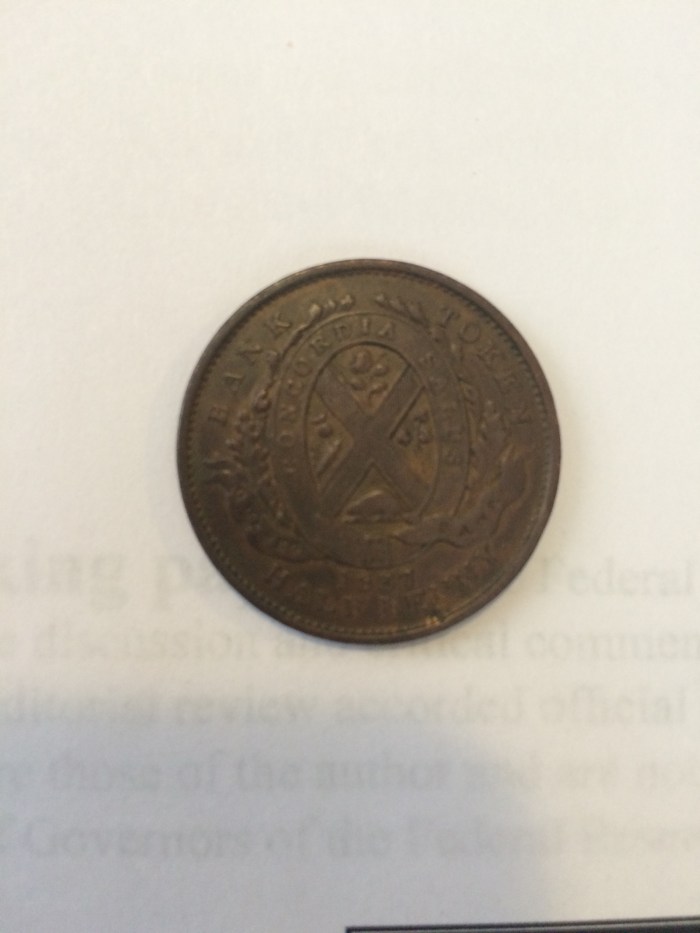Yesterday, George Selgin responded on Alt-M to a series of (relatively) recent paper that posit the impossibility of private money. While Selgin does criticize the theoretical reasoning of the papers, the majority of his case is based on the historical experience of private money – notably the Scottish experience with free banking.
I wanted to write something on this, but Selgin got there faster. Indeed, the historical evidence of free banking in Canada, Scotland, Sweden and the limited experiences observed in France and elsewhere provide a strong backing for soundness of private money. Selgin is right to emphasize this.
However, I can provide a small piece of evidence to support his case. It is not only scholars like Selgin who believe that the historical experience of Scotland was positive. As far back as 1835 and as far away as Canada, the robustness of the Scottish free banking experience was lauded. Consider the following quote from a report to the House of Assembly of Upper Canada (modern day Ontario):
“In Scotland, private banking has long existed and fewer failures have occurred there than in any other part of the world; their Joint Stock Banking Companies embrace some of the following principles by which the public are quite secured and the institutions useful as Banks of Deposit and circulation, while the stock is above par, and proved to be a good investment”
This report was actually presented in Canada arguing that Scottish free banking was a solution to a longstanding problem in the colony : dearth of small denominations. The “big problem of small change” was a real issue in the colony and created important frictions. The problem was most likely created by the fixing of exchange rates between the different currencies at levels dissonant with the actual value of different currencies so that “bad money drove out good money” (see Angela Redish’s work). The report recommended legislative actions to encourage the formation of banks that would issue private notes to solve this problem. Newspapers in the neighboring colony of Lower Canada also praised (in the early 1830s) the role that banks played in easing the problem of “poor money”.
I have made an initial foray on this with Mathieu Bédard of Aix-Marseille School of Economics (and we plan to make another few) and showed that the role of free banking in improving economic growth was considerable exactly because of the issue of private money. While Canada is a small, it provides some additional support to the claim that private money can indeed exist, survive and be superior to state money.
Source: House of Assembly of Upper Canada. 1835. Report of the Select Committee to which was referred the subject of The Currency. Toronto : M.Reynolds Printer.
P.S. Below there is a picture of a half-penny issued by the Quebec Bank in 1837 showing that there was even private coinage in Canada.

Vincent,
I also read Selgin’s piece and found both his theoretical and empirical arguments convincing. I have scanned your paper and will read it through soon. It looks like a valuable addition to the free banking literature.
But I despair when I try to imagine a path to some modern forrm of free banking from where we are now. No matter how soundly argued, a proposition that we should trust private banks to issue money, restrained only by market forces such as adverse clearing and limited demand, would be a very tough sell. Bernie Sanders and lots of others would be all over it.
Warren
I have a feeling that free banking will return through innovation like with bitcoin and other alternative currencies
[…] Source: On Scottish Free Banking (a Canadian Perspective) | Notes On Liberty […]